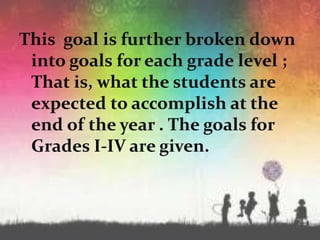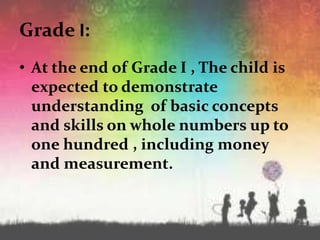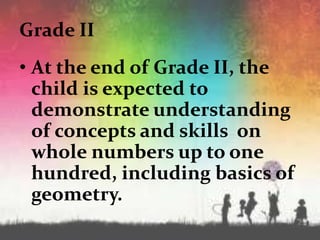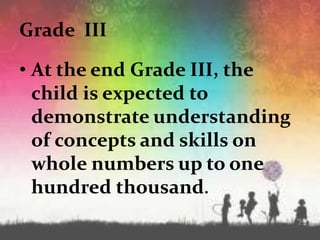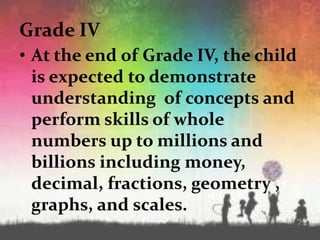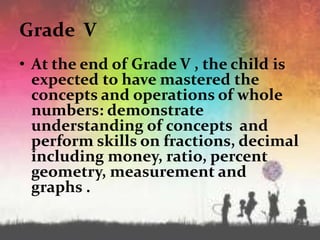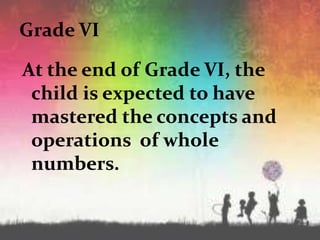The Philippine basic curriculum
- 1. The Philippine Basic Education Curriculum
- 2. This goal is further broken down into goals for each grade level ; That is, what the students are expected to accomplish at the end of the year . The goals for Grades I-IV are given.
- 3. Grade I: • At the end of Grade I , The child is expected to demonstrate understanding of basic concepts and skills on whole numbers up to one hundred , including money and measurement.
- 4. Grade II • At the end of Grade II, the child is expected to demonstrate understanding of concepts and skills on whole numbers up to one hundred, including basics of geometry.
- 5. Grade III • At the end Grade III, the child is expected to demonstrate understanding of concepts and skills on whole numbers up to one hundred thousand.
- 6. Grade IV • At the end of Grade IV, the child is expected to demonstrate understanding of concepts and perform skills of whole numbers up to millions and billions including money, decimal, fractions, geometry , graphs, and scales.
- 7. Grade V • At the end of Grade V , the child is expected to have mastered the concepts and operations of whole numbers: demonstrate understanding of concepts and perform skills on fractions, decimal including money, ratio, percent geometry, measurement and graphs .
- 8. Grade VI At the end of Grade VI, the child is expected to have mastered the concepts and operations of whole numbers.
- 9. End..


